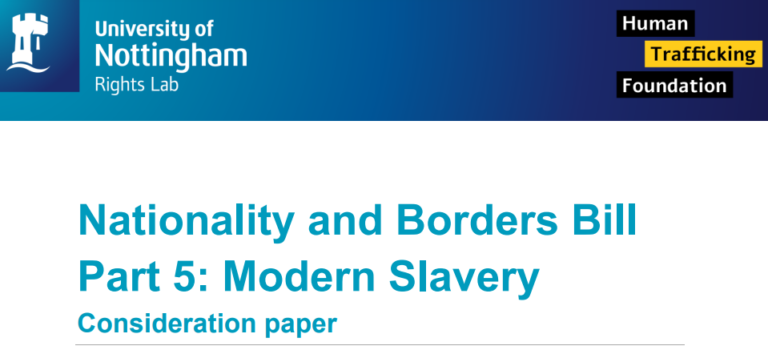The anti-slavery sector is concerned by the inclusion of modern slavery in the Nationality and Borders Bill and the preoccupation with viewing modern slavery through an immigration lens. This consideration paper evaluates the Clauses in Part 5 of the Bill, analysing implications and impacts of the proposed provisions considering existing evidence. This document includes:
▪ An executive summary
▪ An in-depth overview of clauses in Part 5 of the Nationality and Borders Bill.
▪ An outline of potential implications and concerns in relation to reviewed clauses.
▪ Evidence and research basis for each clause.
This document was written to serve as an information source for MPs and Peers as they embark on the parliamentary process and Bill committee stages. It provides an evidence base for the anti-slavery sector to assist in campaigning activity, the engagement of supporters, and a basis from which amendments can be drafted.

